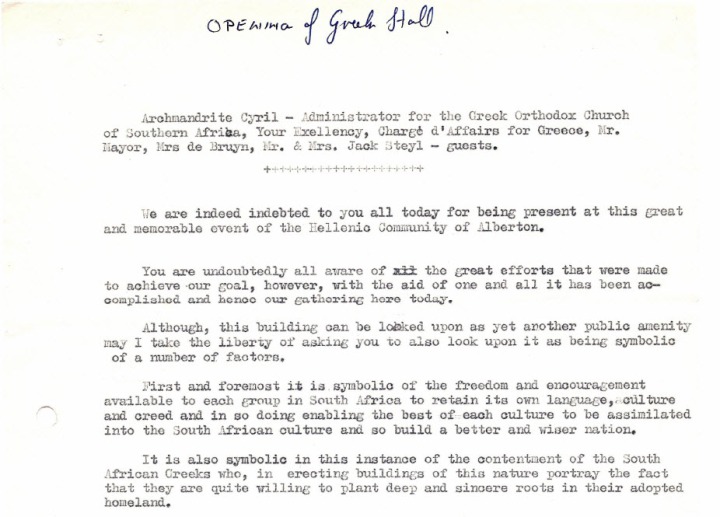Whenever I was faced with making a public speech as a child my mother always used to tell me to imagine the audience in their underwear, so that I would not be intimidated by them. In those days it was safe, but imagine today. Those that are cross dressers would vie for attention with those that wore no underwear!
My father loved talking. He could talk to anyone, of any standing in life. He would strike up a genuine conversation and become involved in that person’s life. He made many speeches and was passionate about formal speeches. He collected all of these, neatly typed, in a file and stored them in the strong room at his office. I had seen the file before when I was a child and after he died I knew it was the one item of his that I wanted. I have digitised the speeches and have started writing about them. The Arch Lever file is an old one, neatly labelled with a simple “SPEECHES”. The pages inside date back to flimsy copy paper and Tipex for typewriter mistakes. The fonts start with the old typewriters that almost delivered a handwritten message their mark was so characteristic. Then they progress to the IBM Golfball electronic machine with its neat, perfect font. The last quarter of the speeches were typed on word processing programmes on the computer.
He was a tall orator, and these speeches were delivered flawlessly in one of three languages: Greek, English and Afrikaans. Some of them were delivered in all three languages, with him switching easily between mother tongue and the adopted languages with succeeding paragraphs. They reflect his endeavours and achievements within his community, at SAHETI, of his involvement at his children’s school and his ability to motivate young people.
When I saw him in Greece in 2006 I gave my father a gift of a digital voice recorder which had the capacity to store two hundred hours of speech. I remember him using a micro cassette recorder to dictate letters while he drove us to Alberton Primary School in the seventies. He would drive his little two door pastel blue Fiat 128 as if it was an Aston Martin and he was James Bond, talking into that Olympus spy recorder.
So I asked him in 2006 to dictate about his life, about who he knew, and what he had done, so that I could write the story on paper and leave a book for posterity. I asked him to do this for posterity and his six grandchildren, whom he loved dearly. I thought the last reason was a good one, and would motivate him to talk to the electronic gadget so that I would have a record.
But he never dictated to that machine for me. After he died in 2008 I found it in its box, unused with no message other than the one that I had recorded on it for him. It was then that I committed to writing a book about his life.

